German Chancellor Olaf Scholz visited China on November 4 and met with President Xi Jinping and Prime Minister Li Kuchiang. “Reducing one-sided dependencies”, “regulating economic relations on the basis of reciprocity”, “free and fair trade” were among the topics that came to the fore during Scholz’s visit accompanied by a delegation of Germany’s leading companies.
His government partners in the three-party coalition, the Free Democratic Party (FDP) and the Greens, opposed Scholz’s visit. Scholz defended his visit, claiming “the continuation of negotiations with Beijing is inevitable”.
We asked Ali Mercan, Representative of Vatan Party Abroad, and Adnan Akfırat, President of the Turkish-Chinese Businessmen Association, about the criticism leveled against the visit, the growing economic relations between the two countries and possible developments in the near future.
German Companies in China
Scholz’s visit focused mainly on economic relations. It would also be fair to say that the visit was welcomed by the business world, which has considerable economic ties with China, as some of them have already expressed that.
BASF, one of the world’s largest chemical companies, is growing with new investments in China. BASF up is building industrial plant worth 10 billion dollars in the southern part of Guangdong. German food monopoly Aldi wants to open hundreds of new stores in China.
BMW and Volkswagen, the giants of German automotive industry, as well as Siemens, Biontech, Bayer, Deutsche Bank, Adidas and other globally renowned economic institutions believe that relations with China hold an important place in Germany’s future.
In a research published by the Berlin-based Mercator Institute for China Studies (MERICS), which conducts important research on China, Gregor Sebastian writes: “More than 40 percent of all European investments in China belong to the automotive sector. The Volkswagen Group generates half of its profits in China.”
People such as Hildegard Müller, President of the Association of Automobile Manufacturers, and Oliver Blume, Chief Executive of Volkswagen, point out that China is Germany’s top trading partner and that there are no alternatives to replace it.
Maximilian Butek, President of the German Business, Industry and Trade World, also stated that Scholz’s visit was an appropriate move.
Concern about ‘human rights violations’
Olaf Scholz raised “human rights violations” in the Xinjiang Uyghur Autonomous Region during his visit. He told reporters that he conveyed his concerns about China’s human rights violations to Chinese leaders. Scholz noted that “human rights are universally recognized” and that he “called on Beijing to respect these rights”, adding that his remarks “do not mean an interference in domestic affairs”.
Some media outlets reported that the advice to Scholz to ‘speak out about human rights violations’ came from Foreign Minister Annalena Baerbock.
“We are pursuing ‘One China’ policy”
Scholz stated that the issue of Taiwan was also addressed during the meeting with the Chinese officials. While voicing concern about the tense situation in Taiwan, Scholz said, “Like the US and many other countries, we are pursuing One China policy. However, this, at the same time, implies that the status quo can only be changed peacefully and by mutual consent.”
“We are against single party system, but…”
“It is incompatible with our principles for the Communist Party to rule alone in any country,” said Scholz at a Social Democratic Party meeting in Berlin after his trip to China, but yet added: “But there are worldwide problems such as hunger, climate change and high levels of debt in many countries. We need to talk and negotiate with China to solve these problems.” Scholz called for “understanding towards countries that have a different approach to democracy than the West”.
Common stance against Nuclear Weapons
With the war in Ukraine, nuclear weapons and the danger of their use have once again become one of the most urgent topics on the global agenda, which Scholz and Xi Jinping also discussed. Scholz said in his statement, “We agreed with the Chinese leaders that nuclear weapons should not be used.”
President Steinmeier’s concern over ‘dependency on China’
President Frank-Walter Steinmeier was one of those voicing concerns about ‘dependence on China’. Speaking after the sale of a 24.9% stake in Hamburg’s largest port to the Chinese shipping company Cosco, German President had warned against ‘dependence on China’.
Stating that Germany needs to consider ways to develop economic ties with Southeast Asia to counterbalance China, Steinmeier said: “We need to reduce one-sided dependencies wherever possible. This is especially true for China.”
‘The Atlanticist media criticizes, Scholz depends visit’
Ali Mercan stated that Scholz’s visit was heavily criticized in the Atlantic-oriented media and said: “In the Atlantic-oriented media, Scholz’s meeting with Xi Jinping was heavily criticized, portraying Xi Jinping as ‘an increasingly authoritarian leader’ and who ‘has been under suspect in areas such as Taiwan, the Uighurs and human rights’. Scholz dismissed the criticism, pointing out that ‘China has become a very important international actor’ and that negotiations were necessary.”
“On his return from China, Scholz answered questions at his SPD’s Representative Meeting. Scholz also defended there his visit against questions and criticism. Scholz said that they agreed with China that “atomic weapons should never be used in the war in Ukraine” and “even for that alone the visit was worthwhile.”
A relationship of reciprocity, not dependency
Another criticism was that Scholz should draw lessons from the energy dependence on Russia, which became evident with the war in Ukraine, and that the similar thing should not happen with China. One of Scholz’s goals with this visit was to avoid a one-sided dependence or to eliminate as much of it as currently exists. Scholz is opposed to weakening economic ties with China, but at the same time he emphasizes that this must not lead to one-sided dependence.
Scholz stresses that the two countries’ economic relations are far from reciprocity in terms of market access for companies, licenses, protection of intellectual property, legal certainty and equal treatment for citizens, and that Germany will take steps to change these.
Germany’s ‘China Strategy’ in 2023
The US is not happy with Germany-China relations. Most recently, the US has targeted China’s purchase of a terminal at Hamburg Port, declaring that “we must eliminate China’s competitiveness”. By intensifying economic and political pressure on Germany and interfering in German-Chinese agreements, the US is trying to prevent Berlin’s growing economic cooperation with Beijing.
Germany will announce a “China Strategy” document in early 2023. This document is crucial for relations in the near future. The US is now pushing for the document to be in its favor.
“US fails to make Europe adversary to China”
United World International author Adnan Akfırat pointed out that the visit is an indication that the US is unable to steer the relations between the two countries as it wants. Akfırat stated the following:
“The German Chancellor’s visit to China marks the resumption of high-level talks between China and Germany. Recall that former German Chancellor Angela Merkel visited China 12 times during her tenure. Olaf Scholz’s visit to China in the aftermath of the Ukraine war signifies a revival of China’s relations not only with Germany, but also with Europe.
Scholz’s visit showed that despite all efforts and pressure, the US has failed to position Europe as an adversary to China, and Russia too.
In favor of a multipolar world
“Another important point in the meeting was the German Chancellor’s statement in Beijing that they are in favor of a multipolar world and that they do not want a new cold war as a country which suffered the most from the tensions of the Cold War.
“China and Germany are partners, not rivals”
“This meeting also confirmed that China’s policy of uniting all nation-states, including developed ones, against hegemonism is feasible. From Beijing’s perspective, China and Germany are partners, not rivals, and both should benefit from each other’s developments. China has always regarded Europe as a strategic partner in a broad sense and supports the EU’s strategic autonomy from NATO and the US. China believes that Europe’s stability and prosperity will help developing countries.”








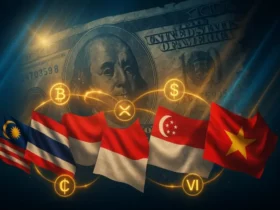
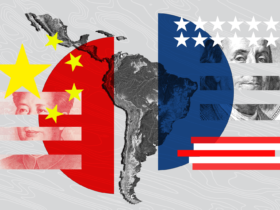


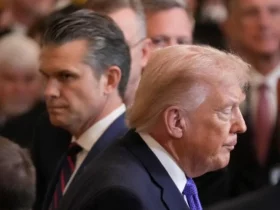
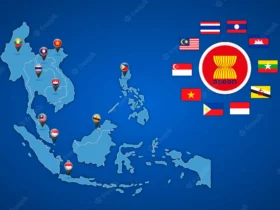
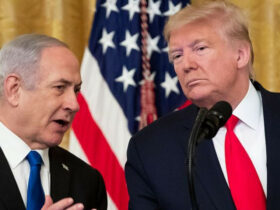


Leave a Reply